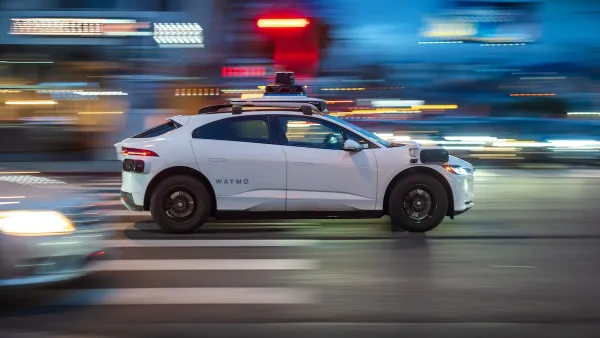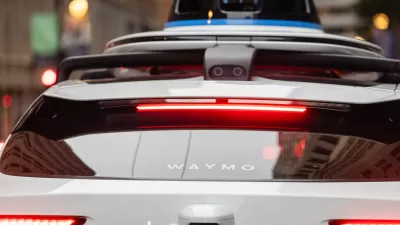Although driverless vehicles are being touted for their potential to reduce congestion and fuel consumption, among other benefits, Casey B. Mulligan argues they'll actually induce the reverse.
"Driverless vehicles are expected to help children, the blind, the elderly and others who currently cannot safely drive themselves. Helped by their huge amounts of data and computing power, driverless cars are also purported to reduce traffic congestion and nationwide fuel consumption by driving smarter."
"But smarter driving will lead to more driving, because smarter driving reduces the cost per mile of vehicle usage," argues Mulligan, an economics professor at the University of Chicago. "The end result of additional driving could be more traffic and more aggregate fuel consumption."
For Mulligan, this might not necessarily be bad news though. "Even if driverless vehicles led to more congestion and more aggregate fuel consumption, driverless vehicles would be a welcome technological advance, because the billions of hours that people already devote to driving could be put to alternative uses."
FULL STORY: The Future of Driving

Planetizen Federal Action Tracker
A weekly monitor of how Trump’s orders and actions are impacting planners and planning in America.

Chicago’s Ghost Rails
Just beneath the surface of the modern city lie the remnants of its expansive early 20th-century streetcar system.

San Antonio and Austin are Fusing Into one Massive Megaregion
The region spanning the two central Texas cities is growing fast, posing challenges for local infrastructure and water supplies.

Since Zion's Shuttles Went Electric “The Smog is Gone”
Visitors to Zion National Park can enjoy the canyon via the nation’s first fully electric park shuttle system.

Trump Distributing DOT Safety Funds at 1/10 Rate of Biden
Funds for Safe Streets and other transportation safety and equity programs are being held up by administrative reviews and conflicts with the Trump administration’s priorities.

German Cities Subsidize Taxis for Women Amid Wave of Violence
Free or low-cost taxi rides can help women navigate cities more safely, but critics say the programs don't address the root causes of violence against women.
Urban Design for Planners 1: Software Tools
This six-course series explores essential urban design concepts using open source software and equips planners with the tools they need to participate fully in the urban design process.
Planning for Universal Design
Learn the tools for implementing Universal Design in planning regulations.
planning NEXT
Appalachian Highlands Housing Partners
Mpact (founded as Rail~Volution)
City of Camden Redevelopment Agency
City of Astoria
City of Portland
City of Laramie





























